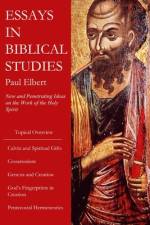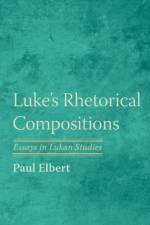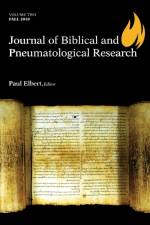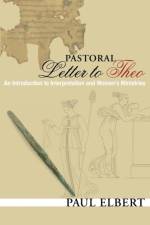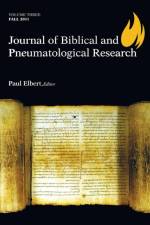av Paul Elbert
275,-
A Pastoral Letter to Theo addresses some of the fundamental concerns of recent research into biblical interpretation by Adele Berlin and Kenneth Archer. It also takes into account the communicative literary and rhetorical techniques that were prominent in the Greco-Roman world when the New Testament documents were composed. Elbert suggests that attention to levels of context, plot, repetition, and characterization or personification comprise a proper method for understanding a New Testament writer's original meaning and intent. Generally, the potentially groundbreaking thesis in much of Elbert's work is for a literary link between the ""Spirit"" language in Paul's letters and the later narrative of Luke-Acts. Specifically, A Pastoral Letter to Theo reflects heartfelt, pastoral concerns based on detailed contextual study of early Christianity and Christian experience. The book contextually examines in detail several passages pertaining to the ministry of women in missionary-minded early Christianity and concludes that this ministry was thought to be vital for the evangelistic enterprise. Written in the form of counsel offered by an experienced minister and scholar to a young man whose ministry is just emerging, Paul Elbert's Pastoral Letter to Theo cautions against the sort of simplistic proof-texting that some evangelical Christians use to exclude both the public ministry of women and the prophetic manifestations of the Spirit today. Elbert's Letter is a helpful and practical warning.Glen W. MenziesChair, Dept. of Bible and TheologyNorth Central UniversityIn this ""letter"" to a friend in ministry, Paul Elbert...is passionate in his pastoral concern to portray God's design to use all His children--men and women alike--in the service of His kingdom. Drawing upon the hermeneutical approaches forged in the Pentecostal/Charismatic movements, Elbert instructs his protege not only in the proper understanding of texts frequently used to prohibit women from exercising their ministry gifts, but also in proper interpretive technique. Letter to Theo will serve nicely as a primer for those interested in both of these issues.Jeffrey S. LampAssociate Professor of New TestamentOral Roberts UniversityStudents of the New Testament will find it profitable to read Letter to Theo's contextual interpretations from First Corinthians, Ephesians, Luke-Acts, First Timothy, and Romans. Here is a persuasive argument based on evidence that supports the heavenly calling of women into missionary and pastoral ministry in complete agreement with the work of the Holy Spirit. The cultural and secular norms of past centuries should not intrude on this very reasonable reading of the distinctive Christian writings originating within the first-century Greco-Roman world. Michael FullerDirector, Graduate Program in Biblical and Theological StudiesLee University Paul Elbert, physicist-theologian and New Testament scholar, teaches theology and science at the Church of God Theological Seminary. He is cochair of the Formation of Luke-Acts section in the Society of Biblical Literature and is a research advisor to the Dominican Biblical Institute, Limerick, Ireland. His writings have appeared, for example, in Zeitschrift fur die neutestamentliche Wissenschaft and in Catholic Biblical Quarterly. He served as editor of two anniversary volumes for Old Testament scholars, Essays on Apostolic Themes (1985) and Faces of Renewal (1988).

